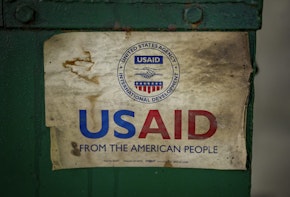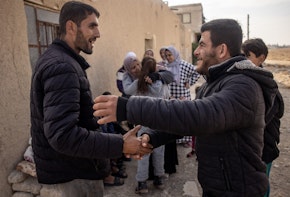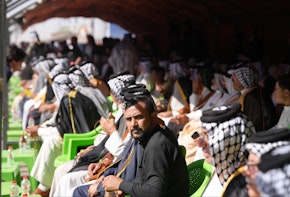The Middle East is experiencing unprecedented political turmoil, violence, and state failure. It also suffers from a unique deficit in its peace and security architecture, even compared to other fractious or unevenly developed regions. Key stakeholders have failed to address the lack of formal structures, even though chronic conflict and sharp crises regularly underscore the deadly and destabilizing consequences.
In this volume, established researchers explore the possibilities for creating security architecture and institutions to facilitate cooperation and mitigate the risks of conflict escalation. These studies examine past and current efforts to undertake regional security dialogue; approaches to collective security; confidence-building measures that can decrease tensions and establish precedents for security cooperation; non-Arab regional actors and outside parties and their role in regional security efforts; and the shape and scope of a future regional security system.
A grim urgency marks the current historical moment. The Middle East gravely needs new ideas to advance regional security. While crisis and conflict have exacerbated threats and fears, they have also created opportunities for carefully crafted prescriptions and alternative security frameworks.
Contributors include:
- Dalia Dassa Kaye, Can It Happen Here?
- Peter Jones, Chasing the Impossible Dream
- Nasser bin Nasser, Cooperation, Contestation, and Historical Context
- Bruce W. Jentleson, Strategic Recalibration
- Emile Hokayem and David B. Roberts, Friends with Benefits
- Brian Katulis, Too Important to Give Up
- Selim Can Sazak and Caglar Kurc, From Zero Problems to Zero Friends?
- Selin Cab Sazak, Cooperating on Nuclear Power
- Emily B. Landau, An Arab-Israeli Security Dialogue
- Dina Esfandiary, No Country for Oversimplifications
- Bassel F. Salloukh, A New Grand Bargain for the Middle East
- David N. Griffiths, Oceans of Opportunity
- Nilsu Goren and Bilal Saab, Atomic Bonds in the Age of Entropy
- Thanassis Cambanis, The Israel-Hezbollah Channel
- Michael Wahid Hanna, Begin the Begin





